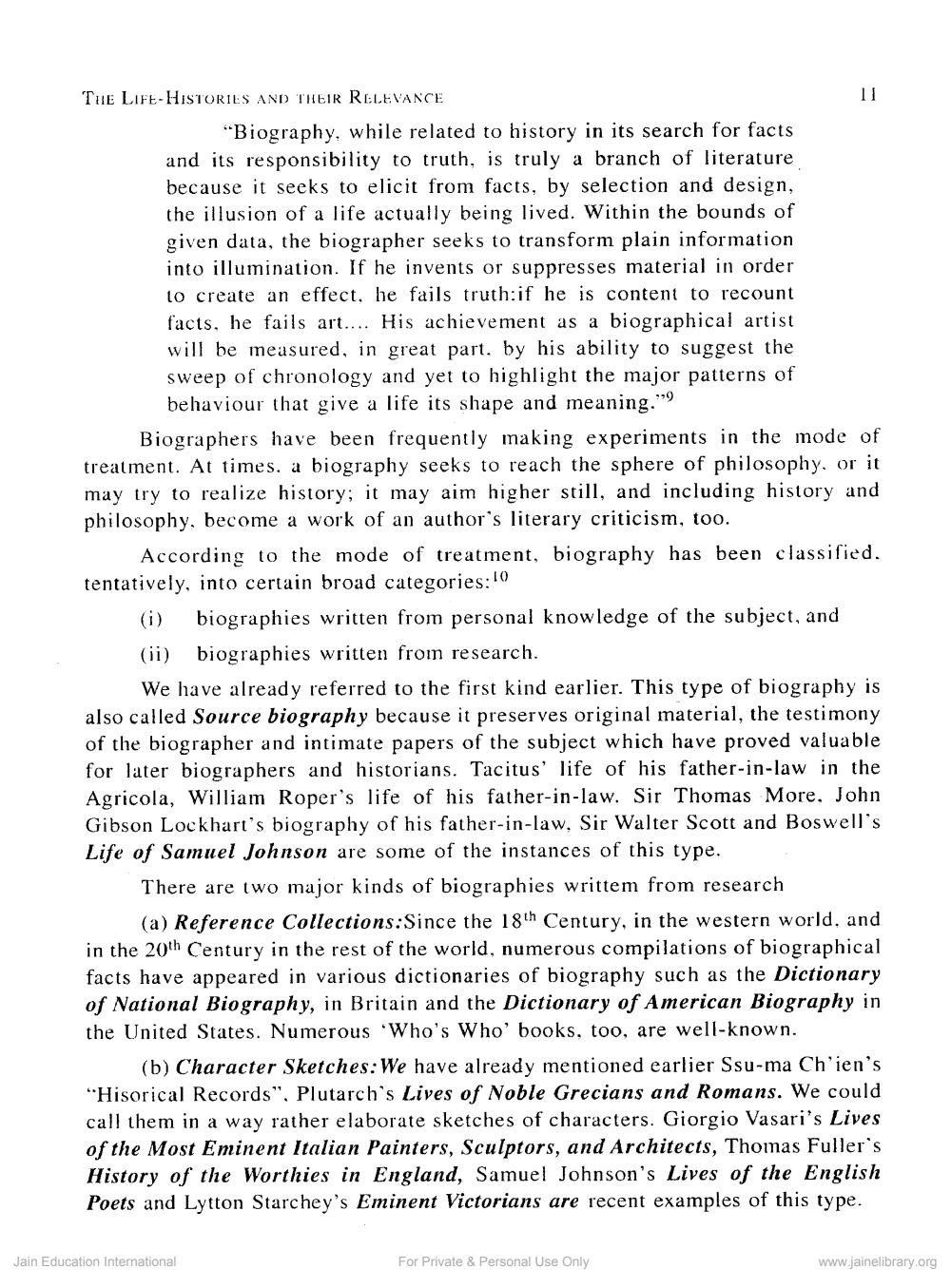________________
Tue LIFE-HISTORIES AND THEIR RELEVANCE
"Biography, while related to history in its search for facts and its responsibility to truth, is truly a branch of literature because it seeks to elicit from facts, by selection and design, the illusion of a life actually being lived. Within the bounds of given data, the biographer seeks to transform plain information into illumination. If he invents or suppresses material in order to create an effect, he fails truth:if he is content to recount facts, he fails art.... His achievement as a biographical artist will be measured, in great part, by his ability to suggest the sweep of chronology and yet to highlight the major patterns of
behaviour that give a life its shape and meaning."
Biographers have been frequently making experiments in the mode of treatment. At times, a biography seeks to reach the sphere of philosophy, or it may try to realize history; it may aim higher still, and including history and philosophy, become a work of an author's literary criticism, too.
According to the mode of treatment, biography has been classified. tentatively, into certain broad categories:0
(i) biographies written from personal knowledge of the subject, and (ii) biographies written from research.
We have already referred to the first kind earlier. This type of biography is also called Source biography because it preserves original material, the testimony of the biographer and intimate papers of the subject which have proved valuable for later biographers and historians. Tacitus' life of his father-in-law in the Agricola, William Roper's life of his father-in-law. Sir Thomas More, John Gibson Lockhart's biography of his father-in-law, Sir Walter Scott and Boswell's Life of Samuel Johnson are some of the instances of this type.
There are two major kinds of biographies writtem from research
(a) Reference Collections:Since the 18th Century, in the western world, and in the 20th Century in the rest of the world, numerous compilations of biographical facts have appeared in various dictionaries of biography such as the Dictionary of National Biography, in Britain and the Dictionary of American Biography in the United States. Numerous Who's Who' books, too, are well-known.
(b) Character Sketches: We have already mentioned earlier Ssu-ma Ch'ien's "Hisorical Records". Plutarch's Lives of Noble Grecians and Romans. We could call them in a way rather elaborate sketches of characters. Giorgio Vasari's Lives of the Most Eminent Italian Painters, Sculptors, and Architects, Thomas Fuller's History of the Worthies in England, Samuel Johnson's Lives of the English Poets and Lytton Starchey's Eminent Victorians are recent examples of this type.
Jain Education International
For Private & Personal Use Only
www.jainelibrary.org




